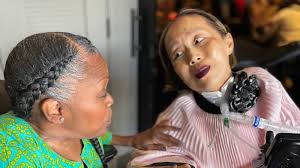Alice Wong: A Leader in the Disability Rights Movement

Introduction
Alice Wong, a well-known disability rights activist, has made significant contributions to advocating for the rights and inclusion of disabled individuals. Her work is crucial as it raises awareness about the challenges faced by those living with disabilities and promotes a more inclusive society. Wong’s advocacy underscores the necessity of equal rights and accessibility, making her a key figure in contemporary discussions around disability rights.
Background and Advocacy
Born in San Francisco, California, Alice Wong identifies as a disabled Asian American. She is the founder of the Disability Visibility Project (DVP), an online community dedicated to recording and amplifying the experiences of disabled people. Wong’s initiative has played a substantial role in ensuring that the voices of disabled individuals are heard, especially in the media and public discourse. Through various platforms, she encourages storytelling that fosters understanding and empathy.
Recent Events and Achievements
In recent months, Wong has been particularly active in advocating for accessible voting during the 2024 elections. She has worked alongside other activists to ensure that election measures are implemented to accommodate voters with disabilities, which has previously been an overlooked aspect of electoral accessibility. This advocacy highlighted the importance of inclusive policies that take into account the needs of all voters.
Furthermore, Wong has collaborated with organizations to create resources aimed at educating the public about the importance of accessibility in various aspects of life, including health care, education, and employment. Her efforts to promote Disability Justice also emphasize the intersectionality within disability rights, calling attention to the unique experiences of marginalized groups.
Conclusion
Alice Wong continues to inspire many through her unwavering dedication to disability rights. Her work has not only raised awareness but also facilitated discussions that challenge societal norms around disability. As advocacy efforts continue to evolve, Wong’s influence is expected to grow, driving important changes in policy and public perception. Ultimately, her work stands as a testament to the power of advocacy in creating a more inclusive world, signalling that the fight for disability rights is far from over. Readers are encouraged to support such initiatives and consider the importance of accessibility in their communities.









